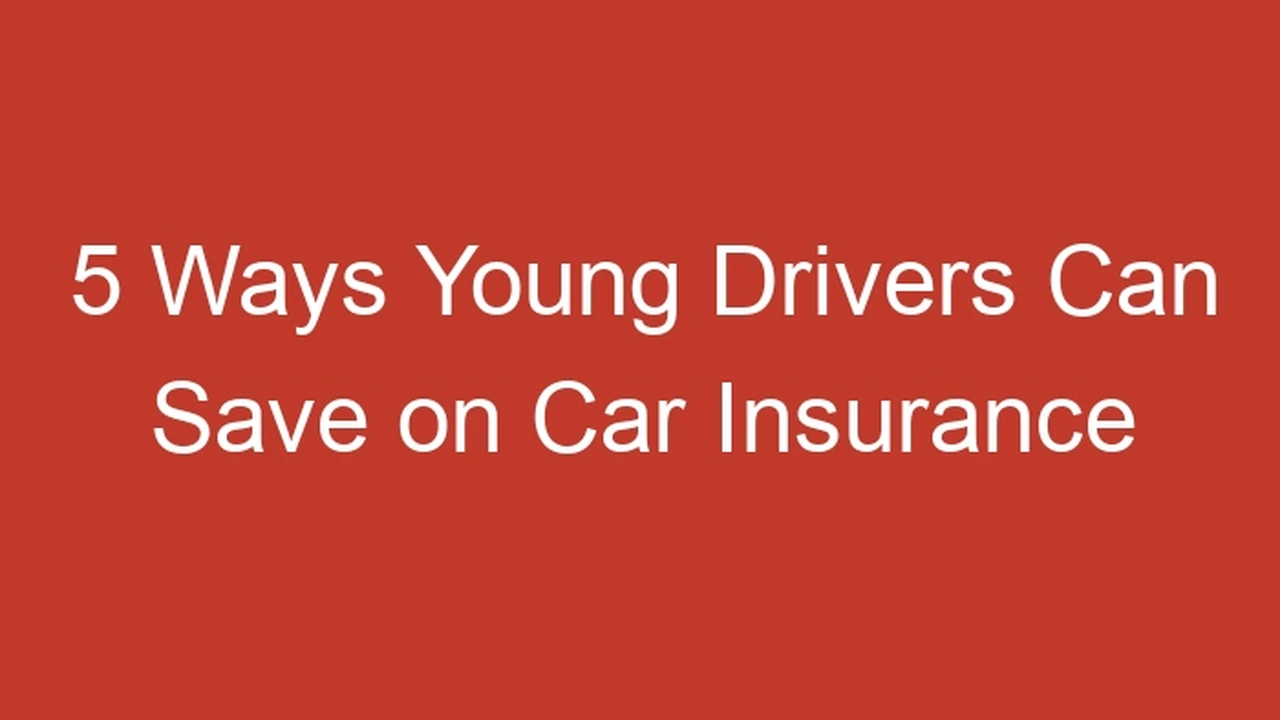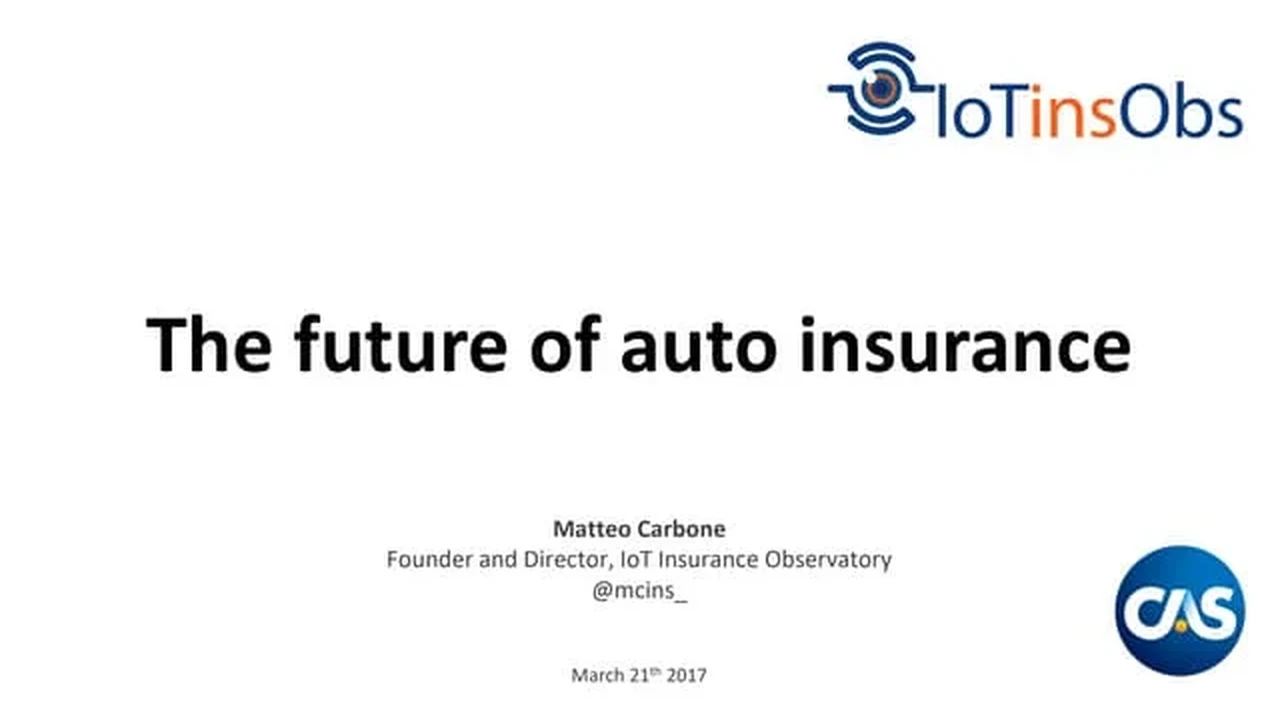5 Ways to Lower Your Auto Insurance in Florida
Discover 5 ways to lower your auto insurance in Florida. Get state-specific advice and discounts to save on car insurance in the Sunshine State.

5 Ways to Lower Your Auto Insurance in Florida
Hey there, Sunshine State drivers! Let's talk about something that probably isn't as fun as a day at the beach but is super important: your auto insurance. Florida is known for a lot of things – beautiful weather, theme parks, and unfortunately, some of the highest auto insurance rates in the country. Yep, you heard that right. Factors like our dense population, high number of uninsured drivers, frequent hurricanes, and even our no-fault insurance laws can make premiums skyrocket. But don't sweat it! There are definitely smart moves you can make to bring those costs down without sacrificing essential coverage. We're going to dive deep into five fantastic ways to save on your Florida auto insurance, including some specific product recommendations and scenarios.
Understanding Florida Auto Insurance Costs What Drives Up Your Premiums
Before we jump into saving, let's quickly understand why Florida's auto insurance can be a bit pricey. It's not just random; there are several key factors at play:
- High Population Density and Tourism: More cars on the road, especially with millions of tourists, means a higher chance of accidents.
- Uninsured Motorists: Florida has a significant number of drivers without insurance, which can drive up costs for everyone else.
- Hurricane Risk: Our lovely hurricane season brings with it the risk of vehicle damage from floods, wind, and falling debris, leading to more comprehensive claims.
- No-Fault Laws: Florida is a no-fault state, meaning your own insurance typically pays for your medical expenses after an accident, regardless of who was at fault. This often includes Personal Injury Protection (PIP) coverage, which is mandatory and can be expensive.
- Fraud: Unfortunately, insurance fraud, particularly related to PIP claims, is a persistent issue in Florida, contributing to higher premiums.
- Litigation: A litigious environment means more lawsuits following accidents, which also adds to insurance company costs.
Knowing these factors helps you understand why a proactive approach to saving is so crucial here.
Strategy 1 Maximize Your Discounts Florida Specific Savings
This is probably the easiest way to start chipping away at those high premiums. Insurance companies offer a ton of discounts, and many are specifically relevant to Florida drivers. You just need to know what to ask for!
Common and Florida Relevant Auto Insurance Discounts
- Multi-Policy Discount (Bundling): This is a big one. If you have your home, renters, or even life insurance with the same company as your auto insurance, you'll almost always get a discount. For example, if you have State Farm for your home and auto, you could see significant savings. Similarly, GEICO and Progressive are known for their bundling options.
- Safe Driver Discount: If you have a clean driving record (no accidents or tickets for a certain period, usually 3-5 years), you're a prime candidate for this. Many insurers, like Allstate with their Drivewise program or Progressive with Snapshot, offer telematics programs that monitor your driving habits and reward safe driving with discounts.
- Defensive Driving Course Discount: Completing an approved defensive driving course can often net you a discount, especially if you're a younger driver or have points on your license. Florida-approved courses are widely available online and in person.
- Good Student Discount: Got a student driver with good grades (B average or higher)? This is a must-ask. Most major insurers like Farmers, Nationwide, and Liberty Mutual offer this.
- Anti-Theft Device Discount: If your car has an alarm system, GPS tracking, or other anti-theft features, tell your insurer. This is particularly useful in areas with higher vehicle theft rates.
- New Car Discount: Some insurers offer a discount for newer vehicles, especially those with advanced safety features.
- Paid-in-Full Discount: If you can afford to pay your entire premium upfront for the policy term (usually six months or a year), many companies will give you a small discount.
- Electronic Funds Transfer (EFT) or Paperless Discount: Setting up automatic payments or opting for paperless billing can also save you a few bucks.
- Military Discount: If you're active duty, a veteran, or a military family member, companies like USAA (if eligible) and GEICO offer excellent military discounts.
Product Spotlight Telematics Programs for Florida Drivers
Telematics programs are a game-changer for safe drivers looking to save. These apps or devices track your driving habits (speed, braking, mileage, time of day you drive) and adjust your premium accordingly. If you're a safe driver, this is a fantastic way to prove it and get rewarded.
- Progressive Snapshot: This is one of the most well-known. You can use an app or a plug-in device. It's great for drivers who don't drive excessively and maintain safe habits. Savings can be significant, sometimes up to 30% or more.
- Allstate Drivewise: Similar to Snapshot, Drivewise uses an app to monitor your driving. It offers personalized feedback and rewards for safe driving.
- State Farm Drive Safe & Save: State Farm offers this program, often using your car's OnStar or SYNC system, or a mobile app. It's particularly good for low-mileage drivers.
- GEICO DriveEasy: GEICO's program uses a mobile app to track driving behavior and offers discounts based on your safety score.
Consideration: While these programs can offer great savings, they do involve sharing your driving data. If you're uncomfortable with that, or if you have aggressive driving habits, they might not be for you. However, for many Florida drivers, the savings outweigh the privacy concerns.
Strategy 2 Adjust Your Coverage Wisely Balancing Protection and Cost
This isn't about cutting corners on essential coverage, but rather making smart choices about what you truly need. Florida's mandatory insurance requirements are 10/20/10 for bodily injury liability and property damage liability, plus $10,000 in PIP. However, these minimums are often insufficient. You'll likely want more liability coverage, but there are areas where you can adjust.
Reviewing Your Liability Coverage
While you want adequate liability, going excessively high might not always be the most cost-effective. A common recommendation is 100/300/50 (100k per person, 300k per accident for bodily injury, 50k for property damage). If you have significant assets, an umbrella policy (see Strategy 5) might be a more efficient way to get higher liability protection than just maxing out your auto policy.
Increasing Your Deductibles
This is a classic money-saving move. Your deductible is the amount you pay out-of-pocket before your comprehensive or collision coverage kicks in. A higher deductible means lower premiums. For example, increasing your deductible from $500 to $1,000 could save you 10-20% on your comprehensive and collision premiums. Just make sure you have that deductible amount readily available in an emergency fund.
- Scenario: You have a 2018 Honda Civic with a $500 deductible for collision and comprehensive. Your annual premium for these coverages is $600. If you increase your deductible to $1,000, your premium might drop to $480, saving you $120 per year. Over five years, that's $600 in savings, which covers the extra $500 deductible if you ever need to file a claim.
Dropping Unnecessary Coverage
If you have an older car that's not worth much, you might consider dropping comprehensive and collision coverage. If your car is only worth $2,000, and your annual comprehensive/collision premium is $500 with a $500 deductible, you're paying a quarter of the car's value each year just for those coverages. If it gets totaled, you'd only get $1,500 back ($2,000 value - $500 deductible). In such cases, it might be more economical to self-insure for physical damage.
- Rule of Thumb: If your car's market value is less than 10 times your comprehensive and collision premium, it might be time to consider dropping them. You can check your car's value on sites like Kelley Blue Book (KBB.com) or Edmunds.com.
Reviewing Rental Car Reimbursement and Roadside Assistance
While convenient, these add-ons can increase your premium. Check if you already have roadside assistance through a credit card, a car manufacturer's warranty, or a membership like AAA. If so, you might not need it on your auto policy.
Strategy 3 Shop Around Regularly The Power of Comparison
This is arguably the most impactful strategy, especially in a competitive market like Florida. Insurance rates are not static; they change constantly based on a myriad of factors, including your driving record, your car, and even the insurer's own risk assessment and financial performance in your area. What was the best deal last year might not be this year.
When to Shop for New Auto Insurance Quotes
- Every 6-12 Months: Make it a habit to get new quotes at least once a year, or even every six months when your policy is up for renewal.
- After a Major Life Event: Getting married, moving to a new zip code, buying a new car, or adding a new driver are all excellent times to shop.
- After an Accident or Ticket: While your rates might go up, shopping around can help you find the insurer least punitive for your recent incident.
- When Your Policy Renews: Don't just blindly renew! Always check if you can get a better deal elsewhere.
How to Effectively Compare Auto Insurance Quotes
Don't just look at the bottom line. Make sure you're comparing apples to apples:
- Identical Coverage: Ensure each quote has the same liability limits, deductibles, and additional coverages (like uninsured motorist, PIP, comprehensive, collision).
- Reputable Insurers: Stick to well-known, financially stable companies. Check their ratings with A.M. Best for financial strength and J.D. Power for customer satisfaction.
- Online Comparison Tools: Websites like The Zebra, NerdWallet, or Bankrate allow you to get multiple quotes at once. Many individual insurers also offer quick online quotes.
- Independent Agents: An independent insurance agent works with multiple companies and can do the shopping for you, often finding deals you might miss. They are particularly valuable in Florida due to the complex market.
Product Comparison Example Florida Auto Insurance
Let's imagine a hypothetical Florida driver, 35 years old, clean record, driving a 2020 Toyota Camry, living in Orlando. Here's a simplified comparison of what they might see (prices are illustrative and vary wildly):
| Insurer | Annual Premium (Illustrative) | Key Features/Discounts | Pros for Florida Drivers | Cons for Florida Drivers |
|---|---|---|---|---|
| GEICO | $1,800 - $2,200 | Military, Federal Employee, Multi-Car, Good Driver, DriveEasy Telematics. | Often very competitive for good drivers, strong online presence, good for military. | Customer service can be hit or miss for some, less personalized than an agent. |
| Progressive | $1,900 - $2,300 | Snapshot Telematics, Multi-Policy, Multi-Car, Continuous Coverage. | Excellent for drivers willing to use telematics, good for high-risk drivers too. | Snapshot can penalize aggressive driving, rates can be higher without discounts. |
| State Farm | $2,000 - $2,500 | Drive Safe & Save Telematics, Good Student, Multi-Policy, Accident Forgiveness. | Strong agent network for personalized service, good for bundling. | Rates can sometimes be higher than online-only insurers, less aggressive on some discounts. |
| Allstate | $2,100 - $2,600 | Drivewise Telematics, Multi-Policy, New Car, Safe Driving Bonus. | Good for bundling, strong local agent presence, rewards safe driving. | Can be pricier for some profiles, telematics required for best rates. |
| Farmers | $2,200 - $2,700 | Signal Telematics, Multi-Policy, Good Student, Professional Group Discounts. | Good for personalized service, offers unique professional discounts. | Often not the cheapest option, less aggressive on online discounts. |
| Local Florida Insurers (e.g., Tower Hill, Universal Property & Casualty) | Varies widely | May offer specialized hurricane coverage, local expertise. | Deep understanding of Florida risks, potentially more flexible. | May have fewer discounts, less brand recognition, financial stability can vary. |
Important Note on Pricing: These are highly generalized and illustrative. Your actual rates will depend on your specific profile, vehicle, location within Florida, and chosen coverage. Always get personalized quotes!
Strategy 4 Maintain a Good Driving Record and Credit Score Impact on Florida Rates
This might seem obvious, but it's worth reiterating. Your driving record and, surprisingly, your credit score are huge factors in determining your auto insurance rates in Florida.
The Clean Driving Record Advantage
Every accident or traffic violation on your record can significantly increase your premiums. Insurers see you as a higher risk. Even a single speeding ticket can lead to a rate hike for several years. Conversely, a clean record for 3-5 years can unlock those valuable safe driver discounts we talked about earlier.
- Tips for a Clean Record: Drive defensively, avoid distractions, obey traffic laws, and consider taking a defensive driving course proactively, even if not required.
The Credit Score Connection in Florida
Yes, your credit score matters for auto insurance in Florida. Insurers use what's called a 'credit-based insurance score' to predict the likelihood of you filing a claim. Studies have shown a correlation between lower credit scores and a higher propensity to file claims. A good credit score can lead to substantially lower premiums.
- How to Improve Your Credit Score: Pay bills on time, keep credit utilization low, avoid opening too many new credit accounts, and regularly check your credit report for errors. Even small improvements can make a difference over time.
Strategy 5 Consider an Umbrella Policy for Enhanced Protection and Potential Savings
This is a more advanced strategy, but it's incredibly valuable for many Florida drivers, especially those with significant assets. An umbrella policy provides extra liability coverage above and beyond your auto and home insurance policies.
What is an Umbrella Policy and How Does it Work?
Imagine you're involved in a severe accident, and the damages exceed the liability limits of your auto insurance (e.g., you have $300,000 in bodily injury liability, but the other party's medical bills and lost wages total $1 million). Without an umbrella policy, you could be personally responsible for the remaining $700,000. An umbrella policy kicks in after your underlying auto (and home) liability limits are exhausted, providing an additional layer of protection, typically starting at $1 million and going up to $5 million or more.
Benefits for Florida Drivers
- Enhanced Protection: Given Florida's litigious environment and the potential for severe accidents, an umbrella policy offers crucial peace of mind, protecting your assets from large lawsuits.
- Cost-Effective High Limits: Often, it's more affordable to get higher liability coverage through an umbrella policy than to continually increase the liability limits on your individual auto and home policies. For example, increasing your auto liability from 250/500 to 500/1000 might be more expensive than getting a $1 million umbrella policy that sits on top of your 250/500 auto limits.
- Broader Coverage: Umbrella policies often cover a wider range of liability situations than just auto accidents, including things like libel, slander, and even incidents that occur on your property.
Product Spotlight Umbrella Policies
Most major insurers offer umbrella policies. You typically need to have your underlying auto and home policies with the same insurer to qualify, or at least meet their minimum underlying liability requirements.
- Chubb: Known for high-net-worth individuals, Chubb offers very robust umbrella policies with high limits and broad coverage. They are often more expensive but provide superior protection.
- Travelers: Offers competitive umbrella policies that can be bundled with their auto and home insurance.
- Nationwide: Another strong contender for bundling, Nationwide provides solid umbrella coverage options.
- State Farm, Allstate, GEICO, Progressive: All these major players offer umbrella policies, and it's often easiest to get one from your existing auto/home insurer.
Illustrative Cost: A $1 million umbrella policy might cost anywhere from $150 to $300 per year, depending on your risk profile and underlying coverage. This is a relatively small price for such significant protection.
Wrapping It Up Your Path to Cheaper Florida Auto Insurance
So, there you have it – five solid strategies to help you lower your auto insurance costs in Florida. It's not a one-and-done deal; it requires a bit of proactive effort and regular review. Start by maximizing those discounts, then take a hard look at your coverage and deductibles. Make sure you're shopping around regularly, especially at renewal time. Keep that driving record spotless and work on maintaining a healthy credit score. And for those who need extra peace of mind, an umbrella policy is a smart move.
Remember, the goal isn't just to find the cheapest insurance, but the best value – adequate coverage at the most affordable price. By implementing these tips, you'll be well on your way to enjoying the Florida sun without breaking the bank on your car insurance!
:max_bytes(150000):strip_icc()/277019-baked-pork-chops-with-cream-of-mushroom-soup-DDMFS-beauty-4x3-BG-7505-5762b731cf30447d9cbbbbbf387beafa.jpg)






